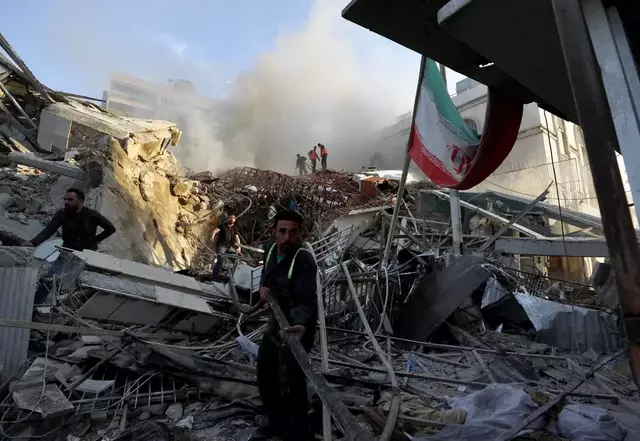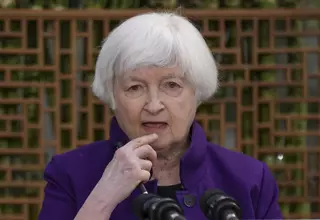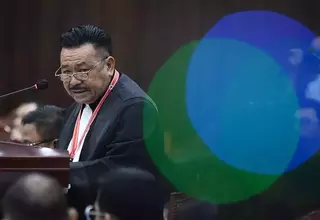Commentary: Can Jakarta Get MRT Moving in Time for Asian Games in 2018?
Phase 1 of work on Jakarta’s mass rapid transit rail line is scheduled to be completed by the middle of 2018, in time for the Asian Games that the Indonesian capital is to host that year. The question is, can that be achieved?
The concept of the MRT was first raised some 40 years ago during the governorship of Ali Sadikin. It was reasonably argued that it was much too early to proceed with construction.
However, as the city’s development began to accelerate 15 or so years later, it would have been timely to have proceeded with construction starting in the 1990s. A feasibility study was undertaken at the time, but this was not taken any further.
The idea was resurrected at the turn of the century in the fledgling days of reformasi, with Japan offering support, but there were too many other pressing matters that seemed more important in this post-Asian economic crisis period. The issue drifted until recently when Jakarta road traffic was already grinding to a halt.
Finally, the present government, with Greater Jakarta, found an acceptable way to proceed with this long-overdue project. Now the citizens of the city can see the project underway, albeit still with some land acquisition issues, particularly in the southern section, still remaining to be resolved.
The project, which commenced about two years ago, is expected to cost an estimated $1.5 billion, which includes the electrical and mechanical systems for the system, as well as the cost of the trains.
The section from the Lebuk Bulus bus terminal in South Jakarta, where the main depot will be located, to the south end of Jalan Sudirman will be constructed above ground, with the underground tunnelled section running from this point onward to the Hotel Indonesia traffic circle on Jalan M.H. Thamrin.
The construction of the above-ground southern part is divided into three sections over the first 9.6 kilometers of the project.
The underground part under Jalan Sudirman is also being constructed in three contracts over a distance of 6.1 kilometers, bringing the total length of Phase 1 of the project to 15.7 kilometers.
Phase 2 will see the continuation of the project from the traffic circle to Kota through the National Monument, at which junction an east-west link is being contemplated.
This northern phase is to follow at a later date and will offer greater challenges to the underground construction activities as the depth to a solid stratum increases and quality of overlying sediment weakens.
Meanwhile, two other separate contracts for the initial section relate to the electrical and mechanical works for the operating systems and the provision of the trains, or rolling stock.
Daily commuters along the central spine of Jalan Sudirman are now well aware of the work that is taking place along the Sudirman underground section, with traffic diversions installed where the stations along the street are to be located.
Naturally, it is the underground part of the MRT that raises the most questions. The depth to a solid foundation stratum of consolidated sediment is relatively shallow along Jalan Sudirman — about 35 meters — which allows top-down construction to take place at the sites of stations, where commuters can see the tops of equipment standing above the screening barriers.
The first stage is to dig down to the foundation level, while putting in diaphragm walls to support the adjoining road system and make sure that there is no lateral movement to affect properties.
Once down to foundation level, the tunnel-boring machines can be brought in to drive the 6.05-meter inner diameter tunnels between stations, these tunnels also sitting on the consolidated settlements and thus not affected by the settlement taking place in the overlying softer layers arising from underground water abstraction.
The amount of material to be removed from the tunnel boring is assessed as five million cubic meters. This is a lot of material, and the constructors will have to remove this from the construction area at night in order that any daytime obstruction to commuters is minimized.
Final locations for this material have yet to be defined, but much fill will be required for planned developments for North Jakarta, although development users will have to take note that this area of North Jakarta continues to sink at a steady rate even without additional loading from the dumped fill material.
This Phase 1 MRT work is scheduled to be completed by the middle of 2018, in time for the Asian Games the city is to host that year.
The question is will it be achieved? From a technical point of view, completion can be realized, but the real challenge relates to the non-technical issues, especially in the resolution of delays from land acquisition disputes.
When fully operational, the MRT will be able to handle some 450,000 commuter journeys per day, but full success will also depend on linkages at important intermodal links, such as on the city plans with the proposed monorails.
[Due acknowledgement is given to briefing from Dr. Irawan Tani, Mott MacDonald project manager for the design for sections CP 104 and CP 105, under Shimizu-Obayashi-Wijaya Karya-Jaya Konstruksi (SOWJ) joint operation.]
Scott Younger is the president commissioner of Glendale Partners and director of Nusantara Infrastructure. The article first appeared in the March edition of GlobeAsia magazine.
Tags: Keywords:POPULAR READS
Yellen Says Iran's Actions Could Cause Global 'Economic Spillovers'
Iran's missile attack on Israel early Sunday came in response to what it says was an Israeli strike on Iran's consulate in Syria.Prabowo Camp Cites ‘Procedural Error’ in Legal Challenge by Rival Candidates
The Constitutional Court's main task is to address alleged discrepancies in vote tallies, which neither of the plaintiffs challenged.Apple Wants to Increase Investments in Vietnam
Vietnam has become more important to Apple as the company seeks to diversify its supply chains away from China.China’s Top Diplomat Wang Yi to Visit Indonesia for Cooperation Talks
Chinese top diplomat Wang Yi will chair a policy coordination meeting aimed at strengthening Indonesia-China cooperation.President Jokowi Urges Global Restraint as Tensions Rise in the Middle East
President Joko "Jokowi" Widodo emphasized the importance of diplomatic efforts to prevent the escalation of conflict in the Middle EastPopular Tag
Most Popular






















